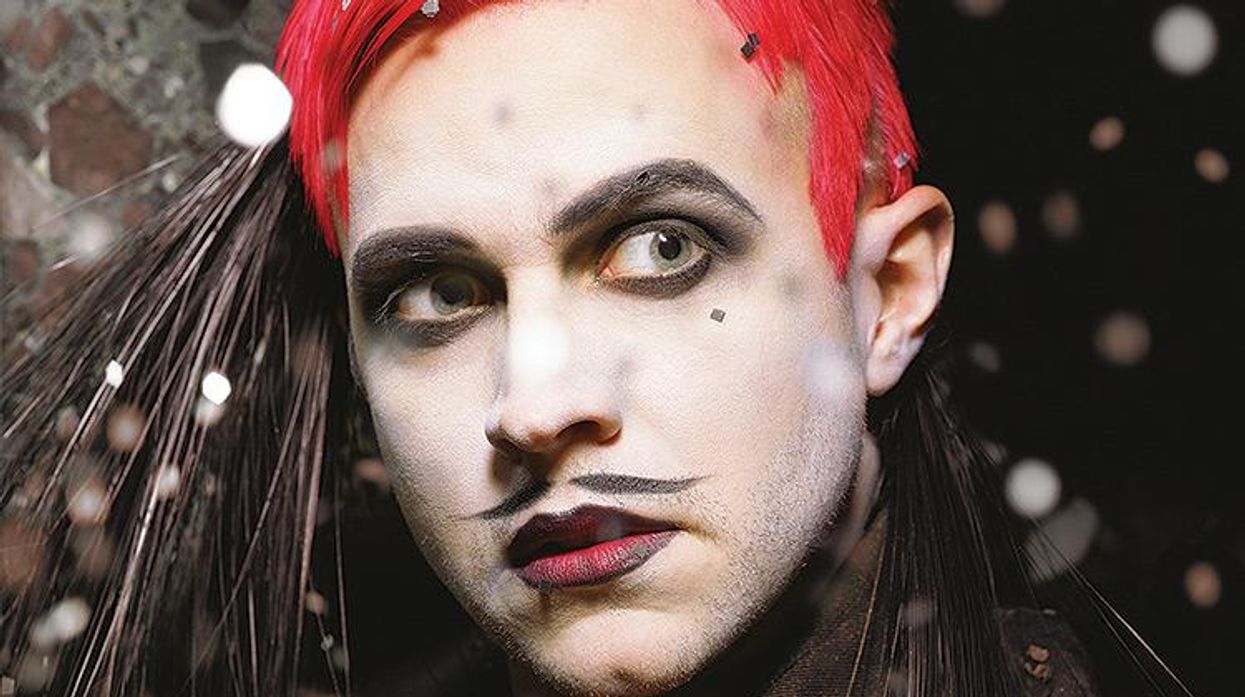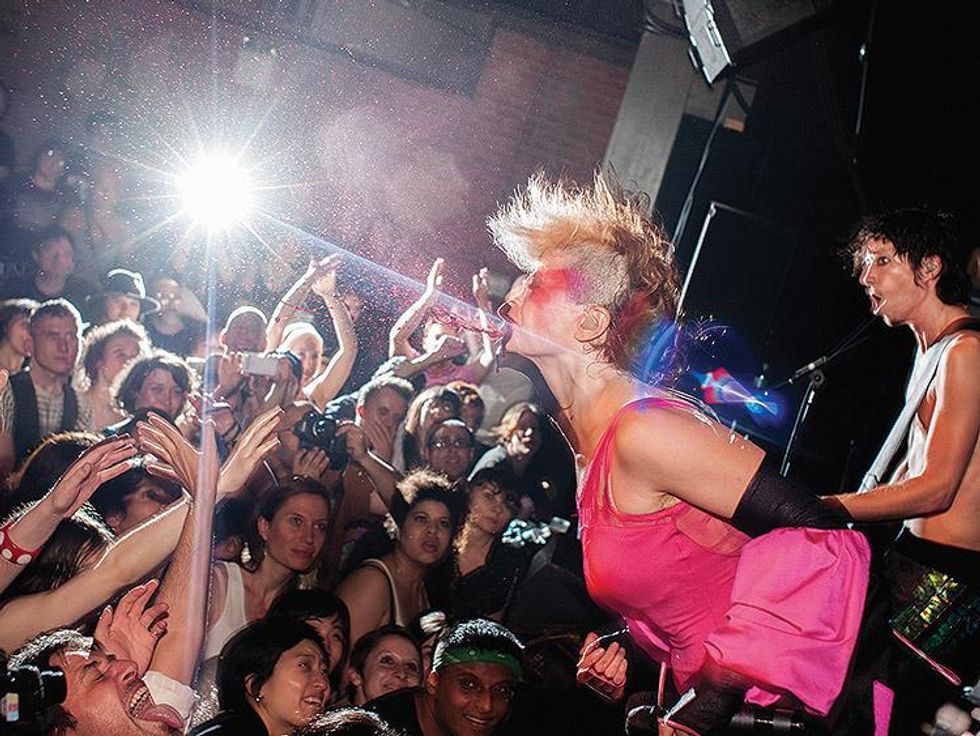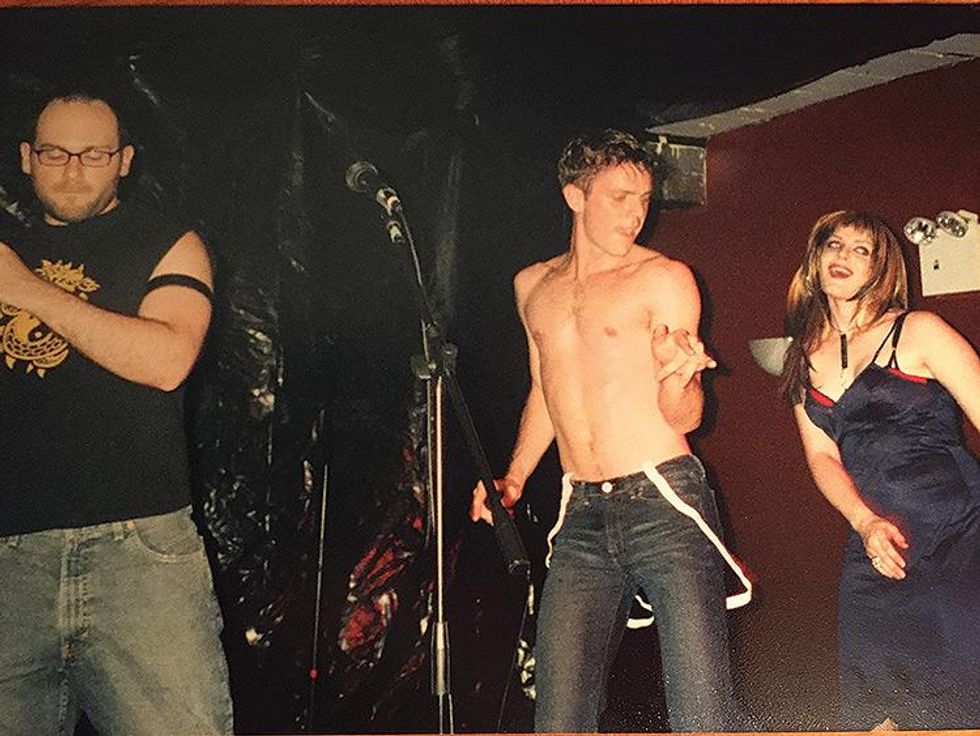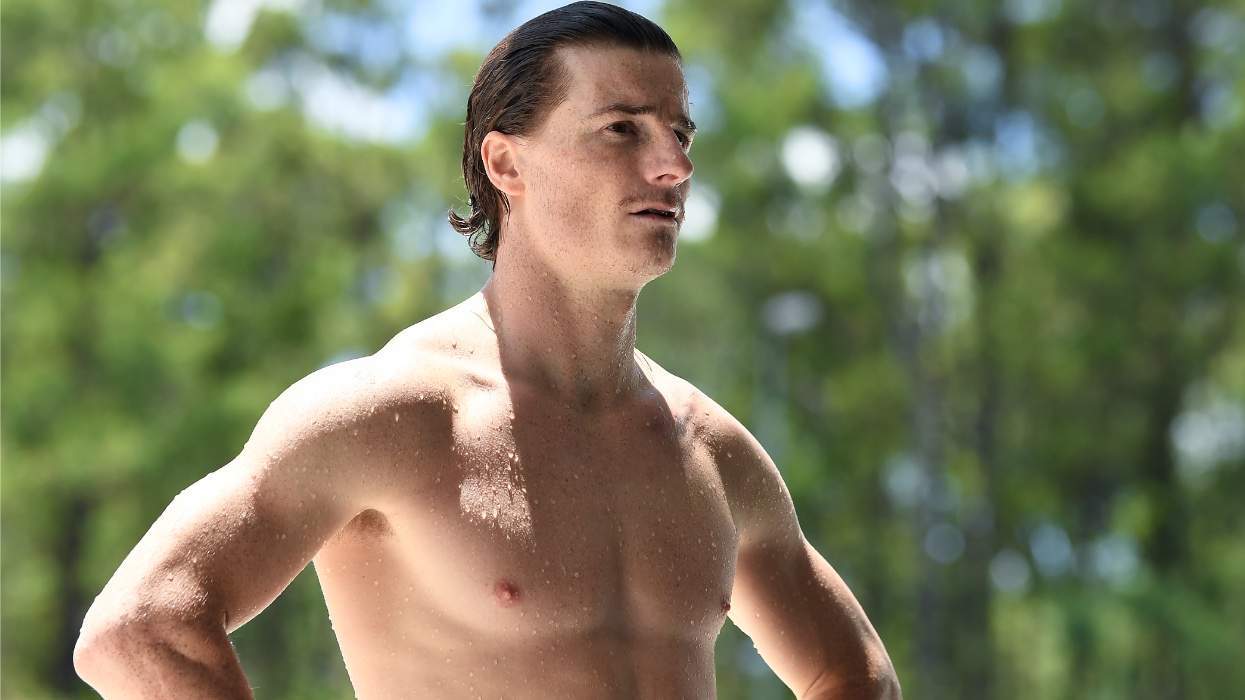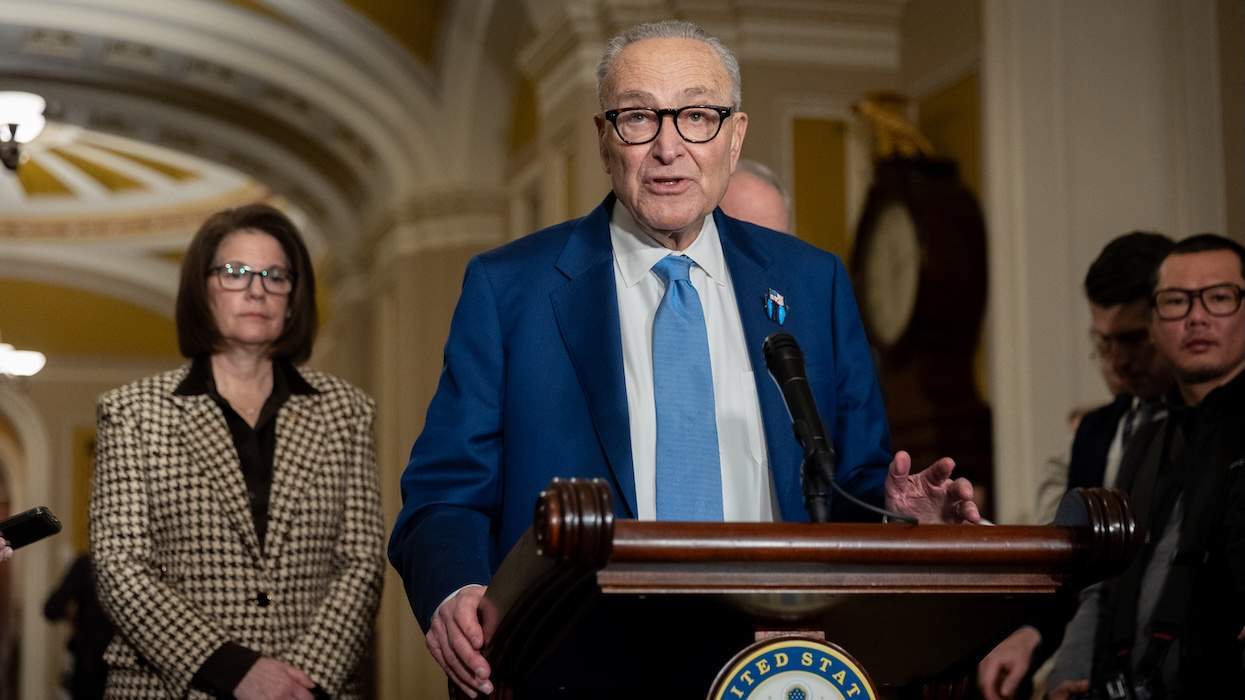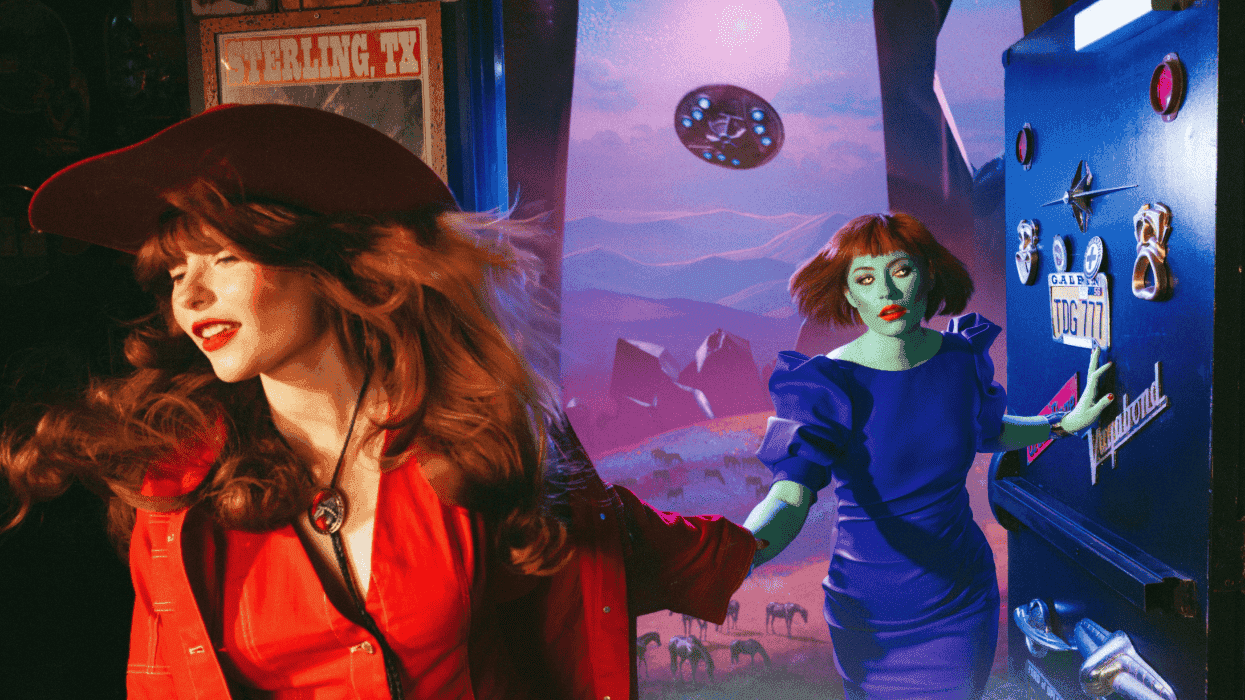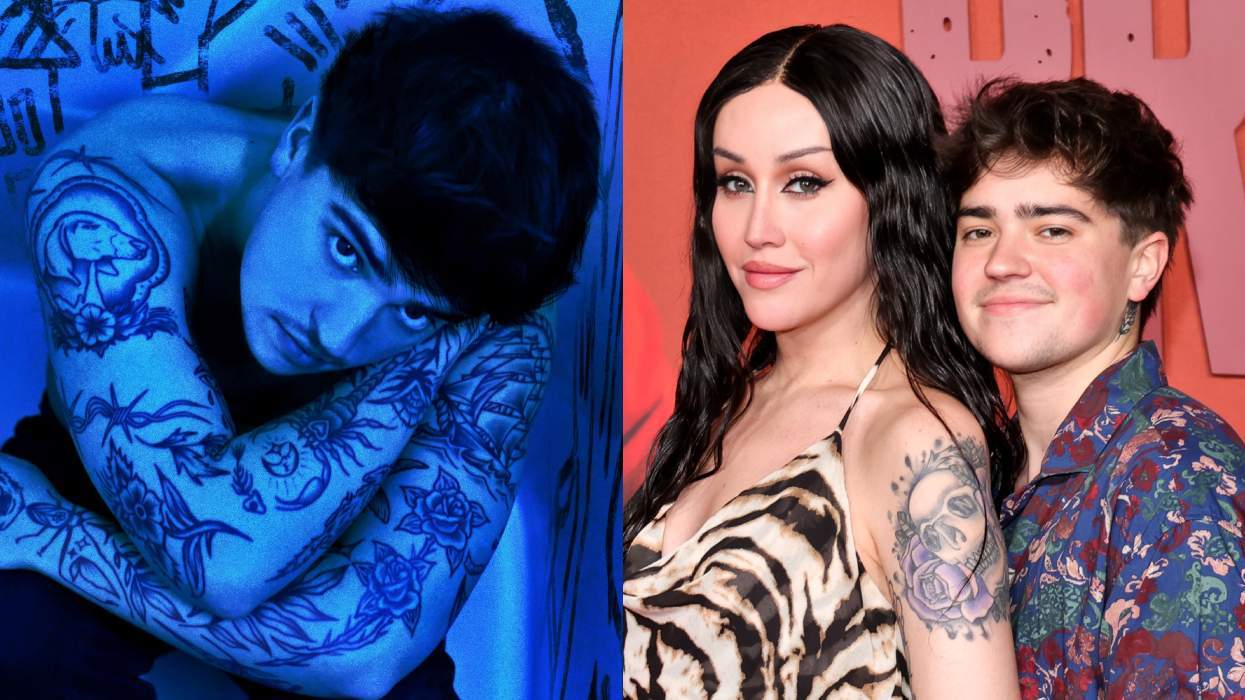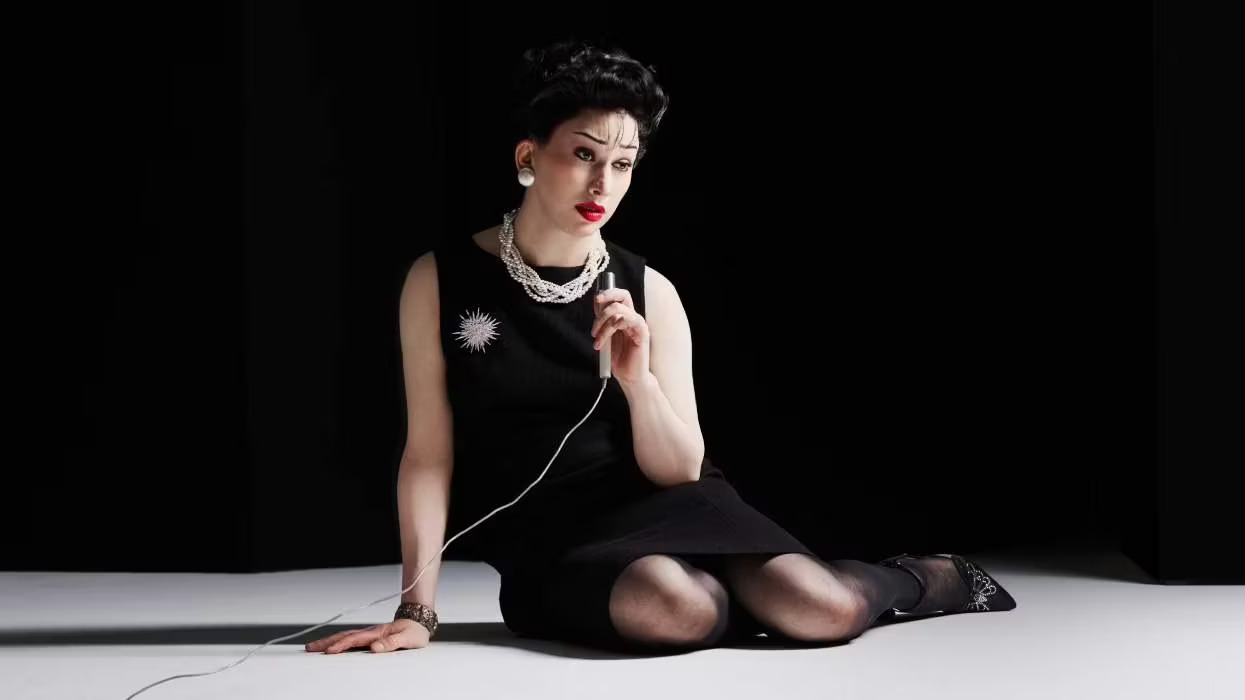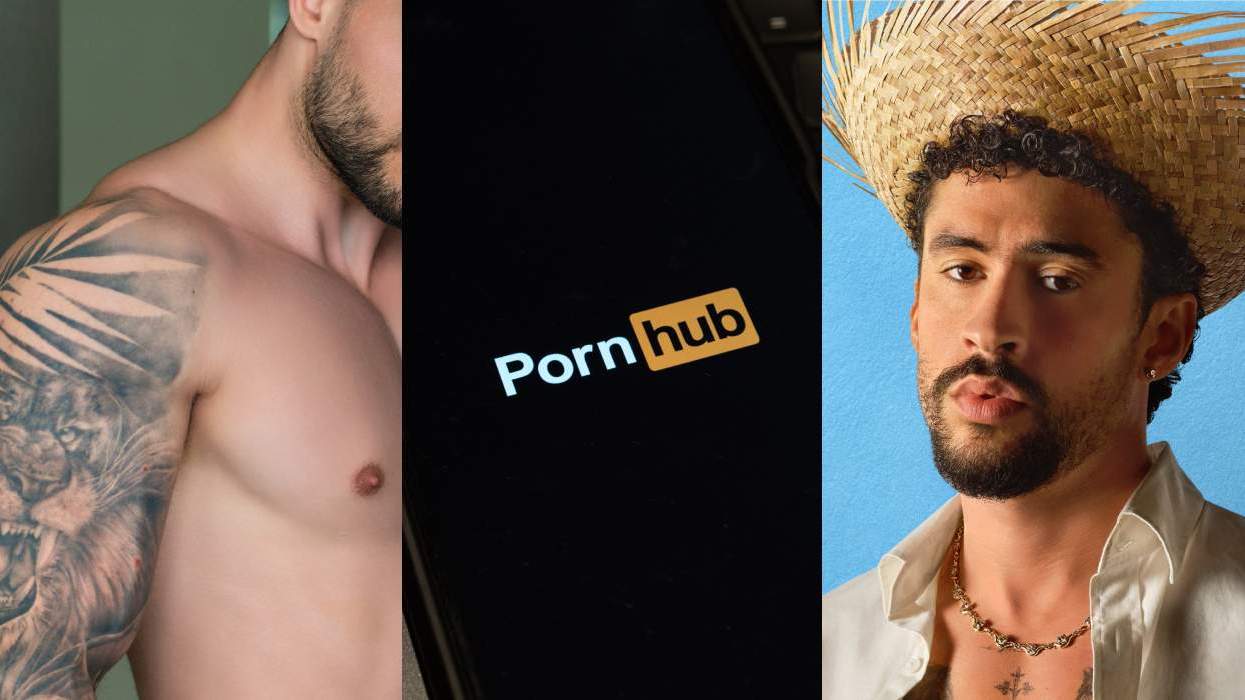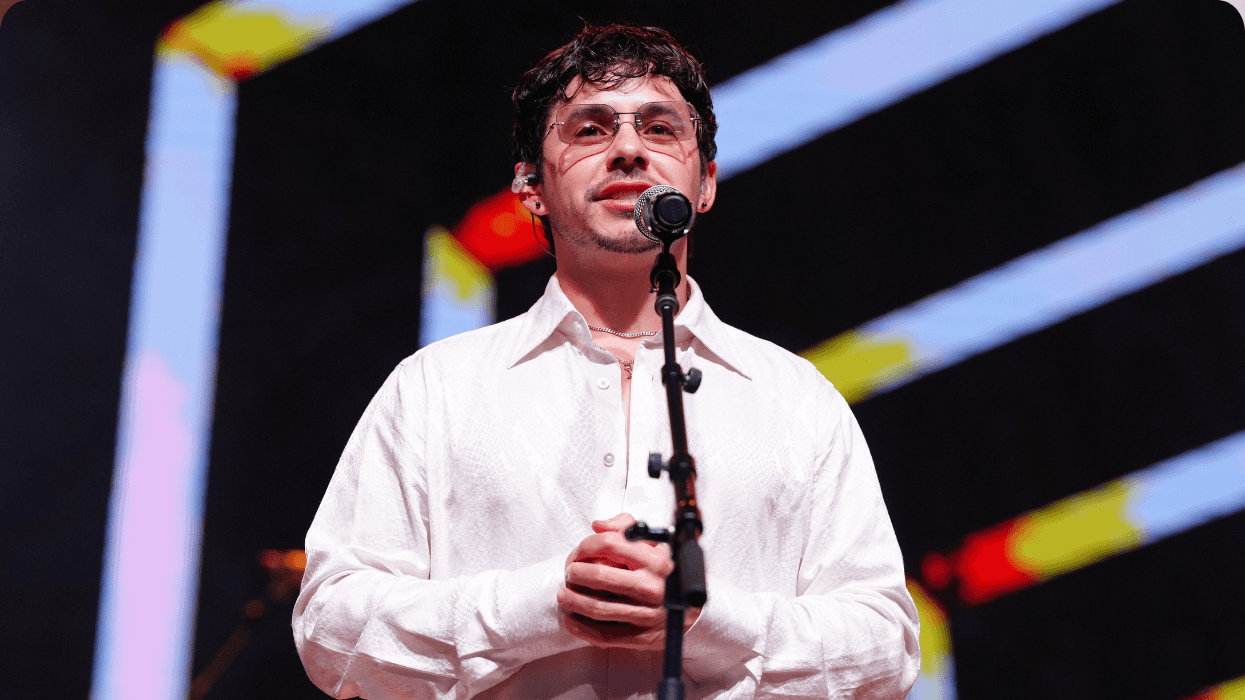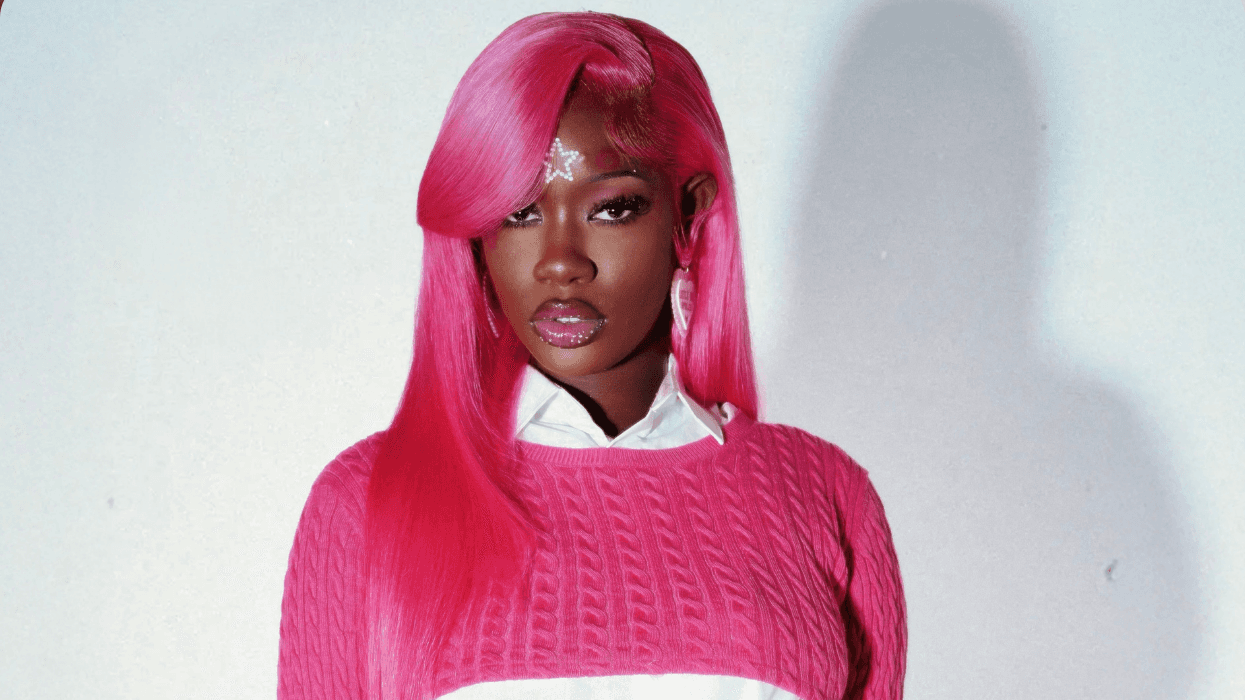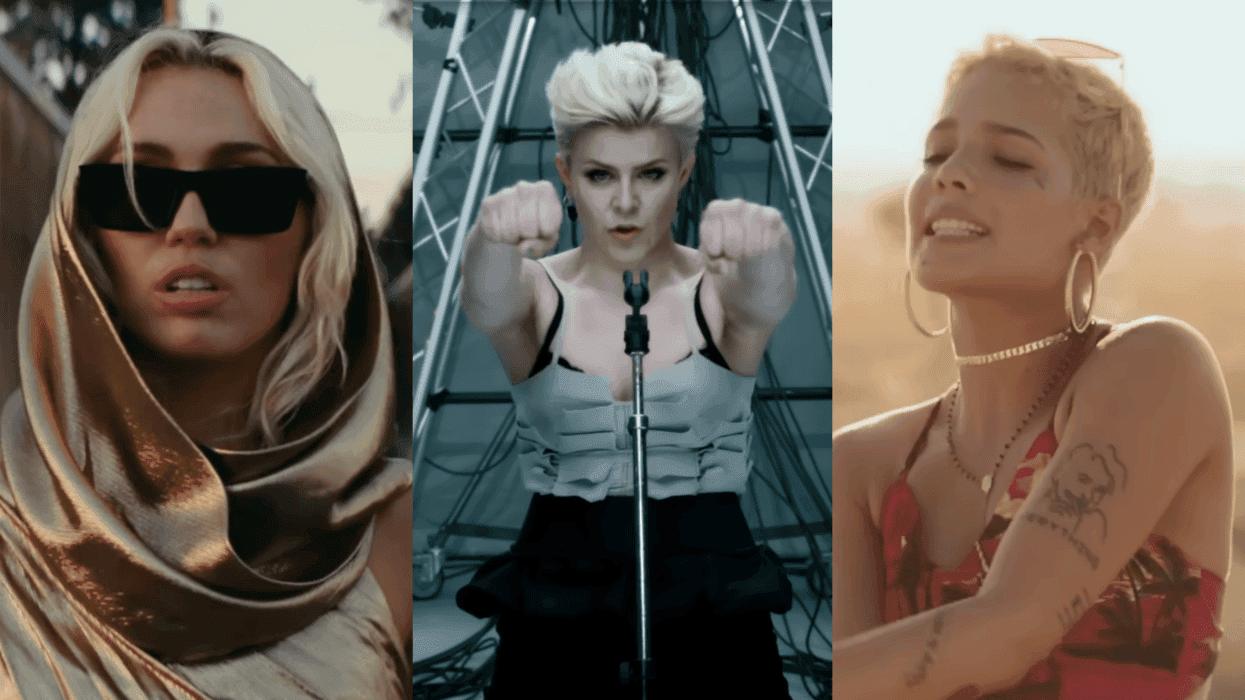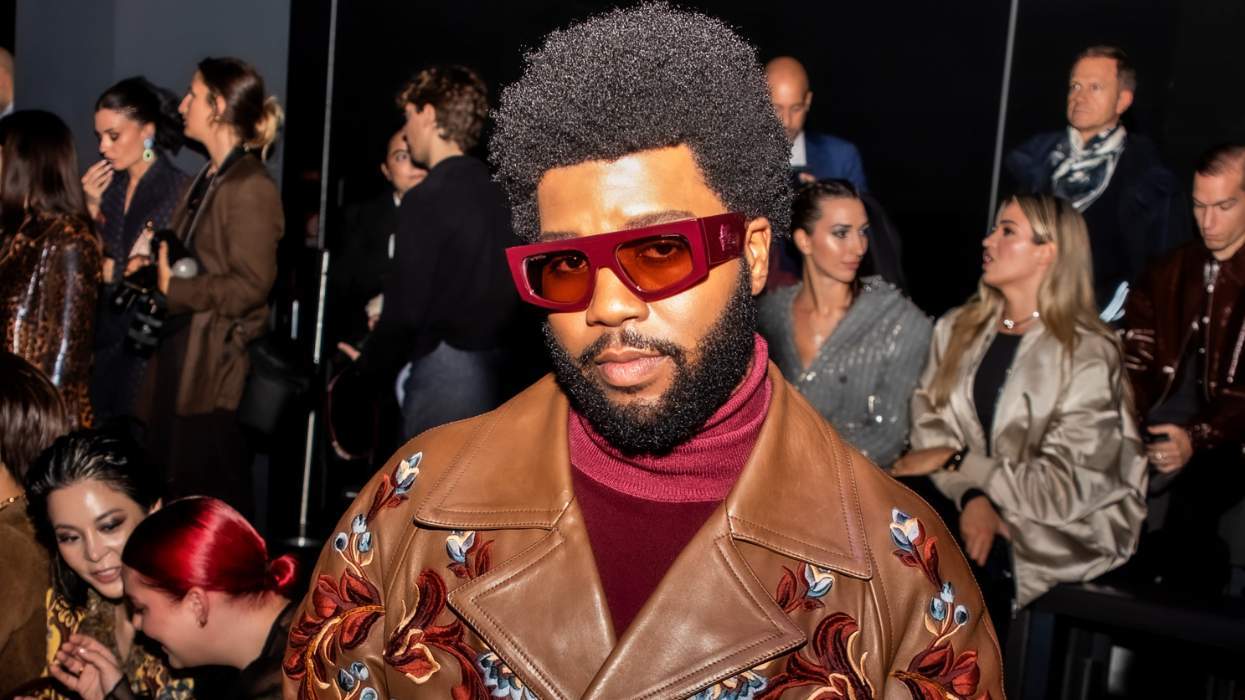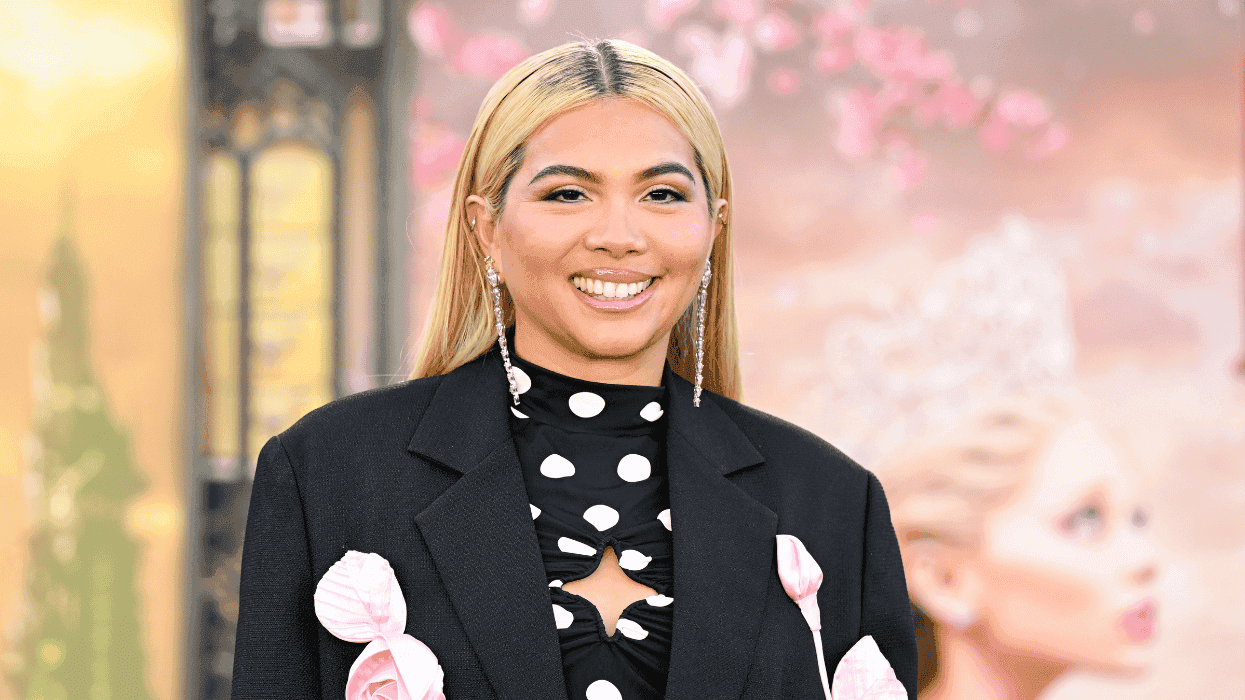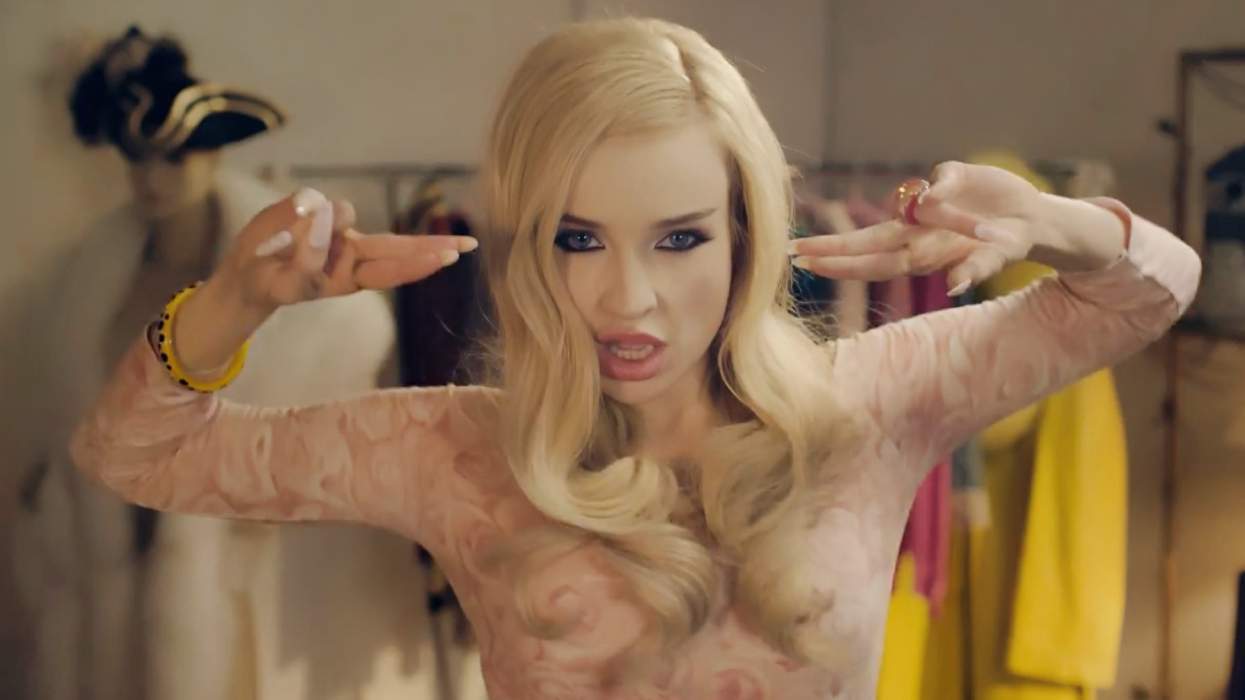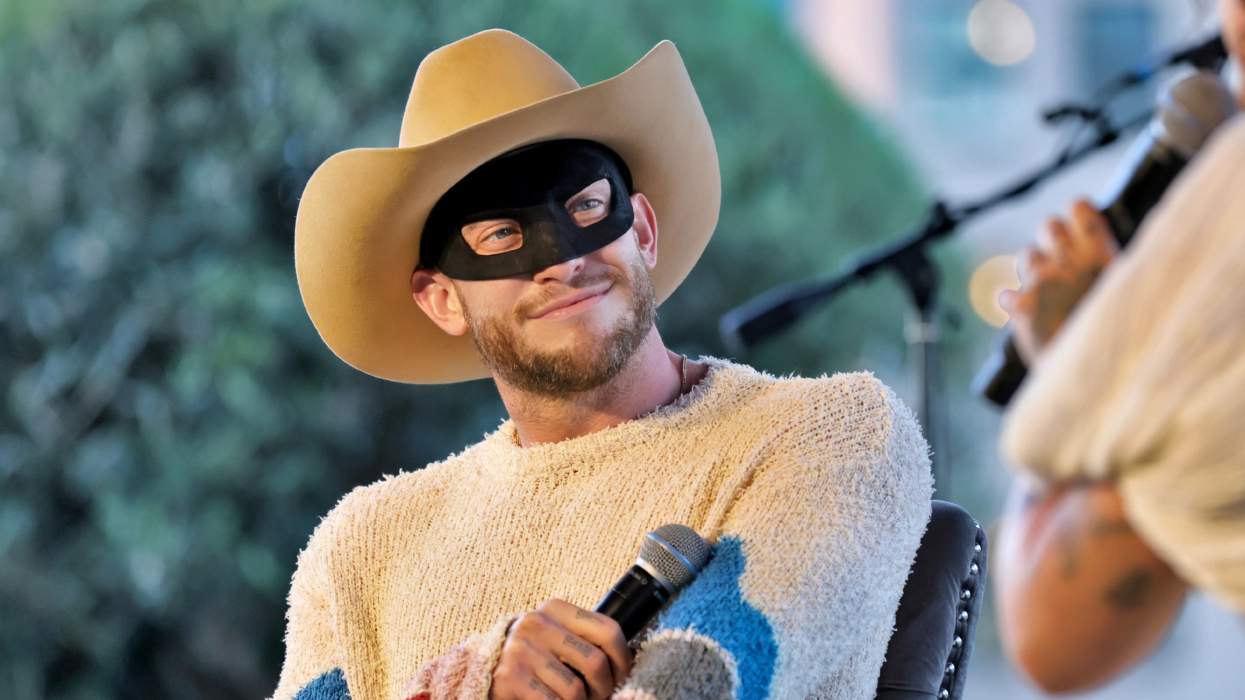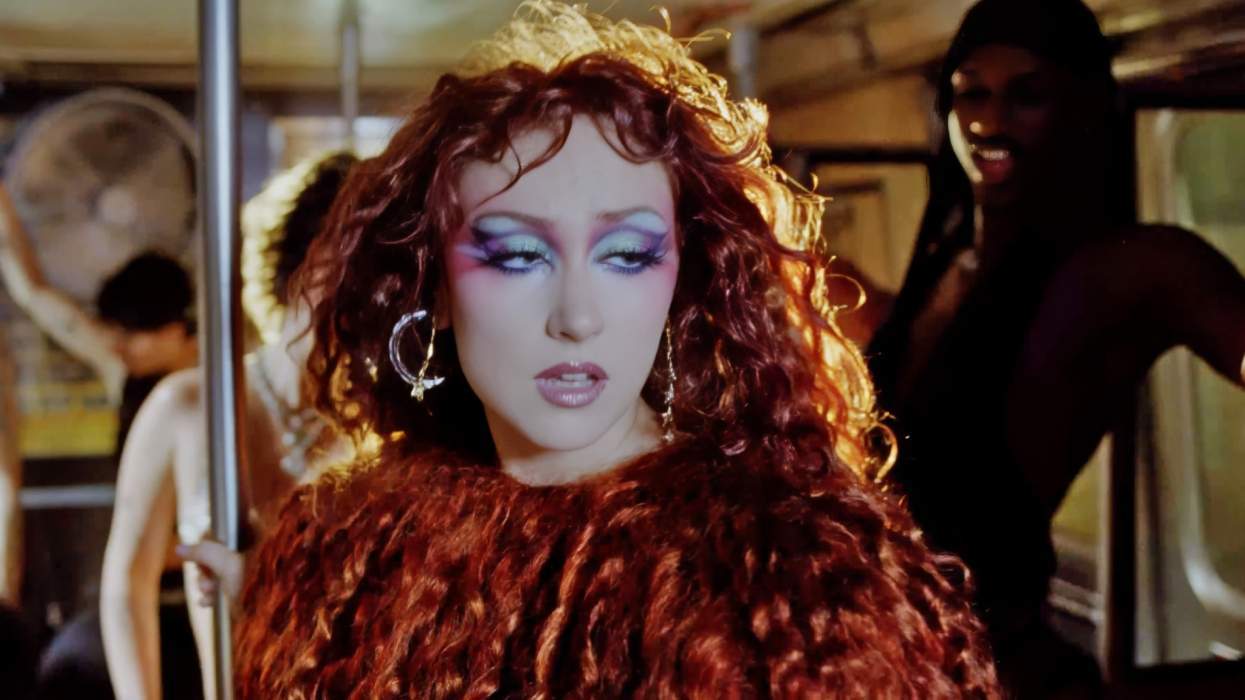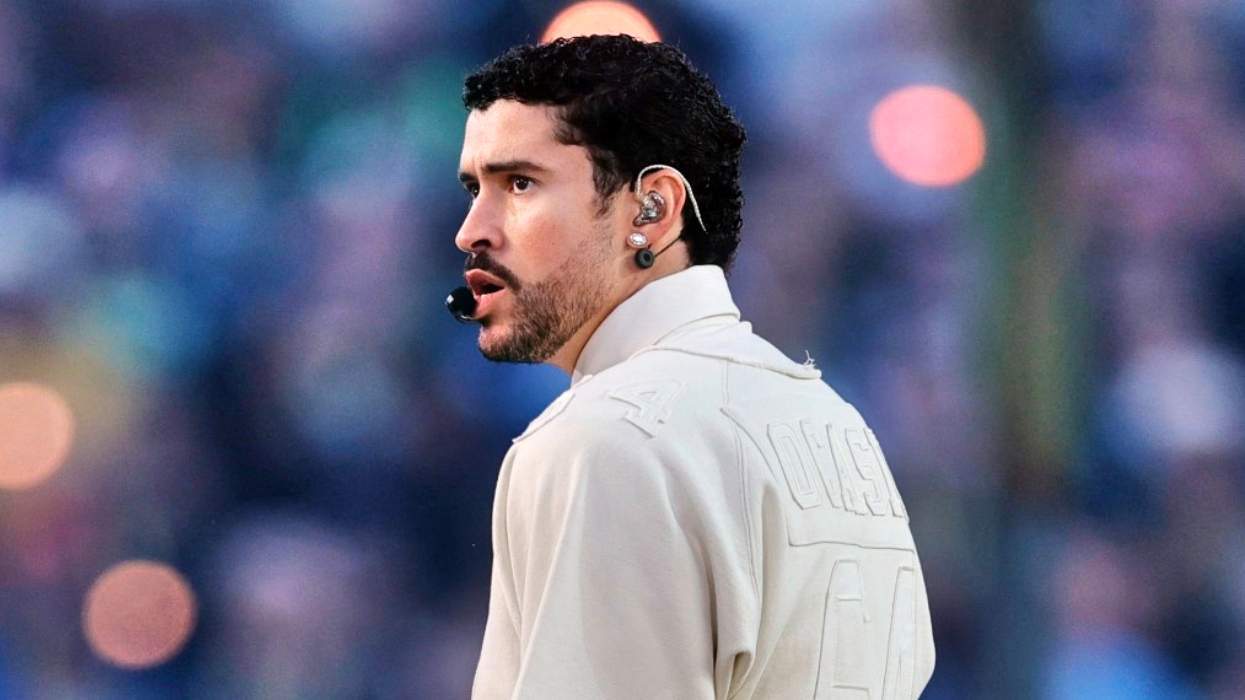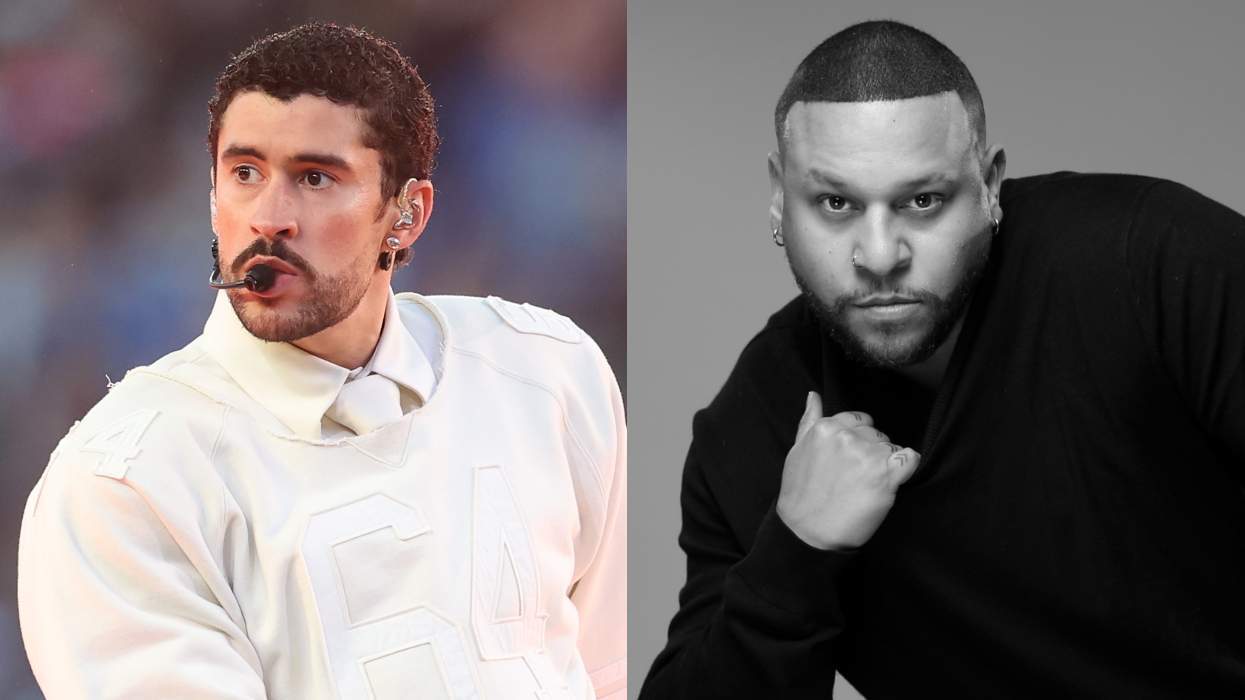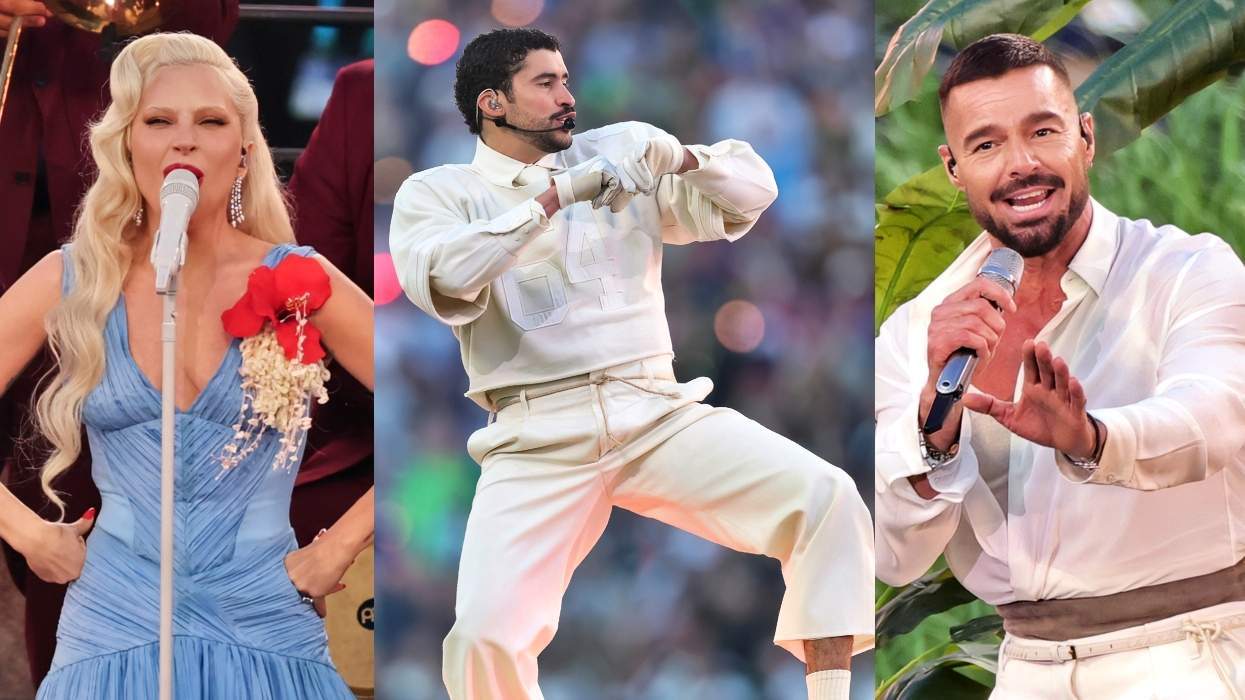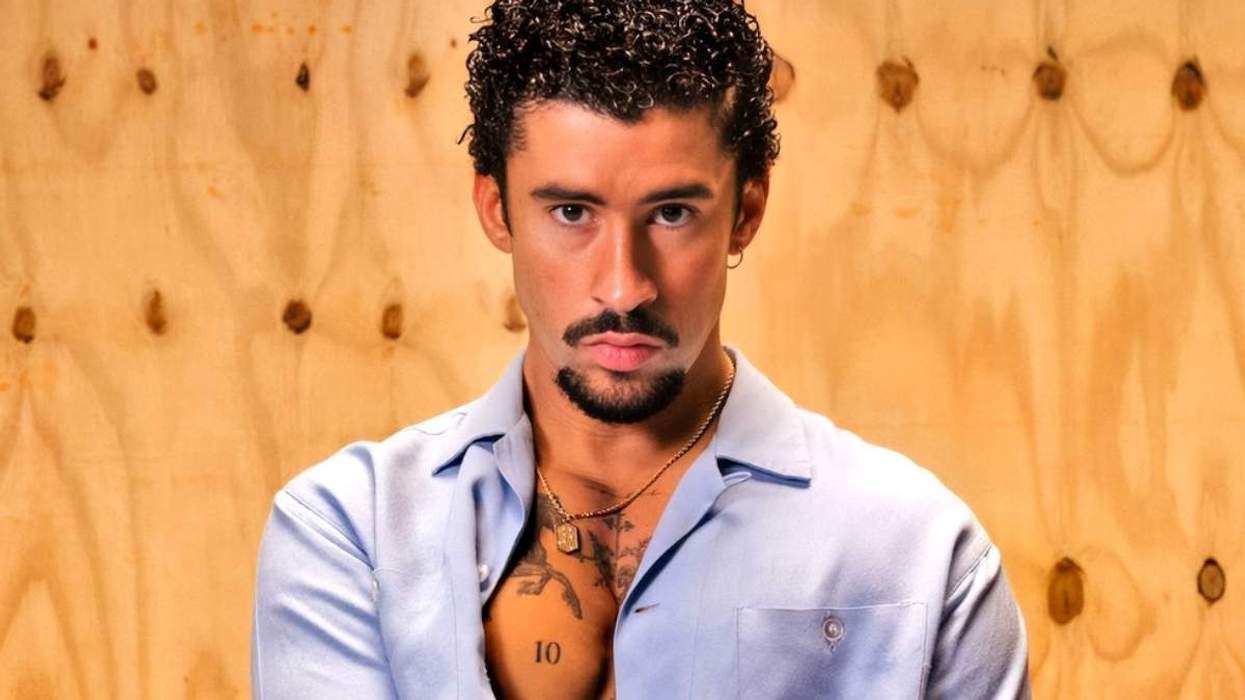For 25 years, OUT has celebrated queer culture. To mark our silver jubilee, we look back at some of the biggest, brightest moments of the past 9,131 days.
In 2002, Peaches released her gleefully smutty album The Teaches of Peaches, and found herself smack dab in the middle of a movement. Electroclash was a genre- and gender-defying fusion of punk, new wave, techno, and performance art, and while it earned its fair share of detractors--who deemed it everything from an uninspired recycling of old sounds to a fleeting gimmick that favored style over substance--its dirty digital beats, hedonistic mantras, and outlandish costumes are part of the pop-music fabric now. Here, Fischerspooner's Casey Spooner, Scissor Sisters' Jake Shears, and Peaches, all of whom played at the first Electroclash Festival, discuss its origins and legacy.
Jake Shears: The first time I heard the term "electroclash" was probably straight out of Larry Tee's mouth. He was such a brilliant and shameless self-promoter. Now I think of it as an era and a scene, not an actual genre of music. It was a sensibility.
Peaches: I'd heard about other acts like Chicks on Speed, Le Tigre, Tracy and the Plastics, and Fischerspooner. All of us had the same sort of feelings about where music was and how it needed to involve performance, but also politics. I got invited to play the festival in 2001. I didn't even know what electroclash was because I wasn't in New York--I was in Berlin doing my thing.
JS: It was all self-constructed, including the personas people created, which were arguably just as important as the music. The performances were the clinchers. Not having traditional bands freed everyone up to put their energies into creating the looks, gags, and props for the shows. It was also the dawn of easily accessible home studio technology, which allowed us to make decent recordings in our bedrooms. The first wave--Fischerspooner, Chicks on Speed, Adult, Peaches, and Le Tigre--inspired the whole scene. They were so fun and inspiring, they became our heroes. They spawned a whole slew of acts to follow, including Scissor Sisters.
Peaches
Casey Spooner: I think the biggest motivation for us was the paranoia around the turn of the millennium. Everyone was bracing for the apocalypse and talking about Y2K. What if every computer chip stopped working? There would be no elevators or escalators. Streetlights wouldn't work. People were stockpiling water. The city was rumored to have bought 60,000 body bags. It was a dark, scary time. I was confronted with this "Party like it's 1999" impulse. I said, "OK, if I'm going to die at the stroke of midnight, what the fuck do I want to be doing?" I wanted to be dancing, sweaty in a jockstrap, covered in glitter. It was about going against fear, or, as Justin Vivian Bond says, "Glamour is resistance."
JS: Post-9/11, there was this "fuck it all" freedom. Scissor Sisters were just out to have a great time. Being able to get on stage at Luxx in Williamsburg was scratching some kind of itch. In the process, some pretty good songs accidentally got written.
CS: There was this moment of everyone discovering each other. I remember the first time I heard "Fuck the Pain Away." I walked into Gavin Brown's bar Passerby on 15th Street and it was playing. It was like my whole--all my holes... I got so excited! I said, "What the fuck is this song?" It was punk, but very now.
P: I could write a thousand-page book on people's stories about "Fuck the Pain Away": them conceiving children to it, giving birth, figuring out who they are--be it a trans, gay, rocket scientist, whatever. In 30 Rock, Liz Lemon tried to pick up a guy and used it as her ringtone.
JS: The electroclash crowd and performers were a real mixed bag of types, sexualities, and genders, and there was a real celebration of flamboyance and gaudiness.
An early Scissor Sisters show at Luxx
CS: My problem was that a lot of people would choose this dated sound, and then do something dated with it. I was never into this '80s rehash where people went, "Aerobics!," or were singing about robots and telephones. I was always trying to conceptually work against the sound. I was like, "Nature!" That's why I'd dress like a monster and whenever we'd do hair and makeup tests, I'd bring in images of birds from Costa Rica.
P: It was too much for people--they almost couldn't handle it. New York could, of course, but I was like an alien to people. They were like, "Is this music? Performance art? What are you?"
CS: I had red hair and a painted-on mustache, but I also had a beefy farmer's body. I wasn't pretending to be a woman--it was more like Louis XIV, but in a thong. Honestly, I don't know what you'd call it.
P: People make fun of electroclash and say it died, like, six months after it was born, but it got reborn a million times after that. It just kept getting watered down and less political and less LGBT-centered. It turned into, like, new rave and then eventually became EDM. It built the rest of what happened. Even in pop music. You look at someone like Gaga and what she's achieved at that level and what she can say, and it's fucking amazing. Pop stars now are not afraid to be out.


